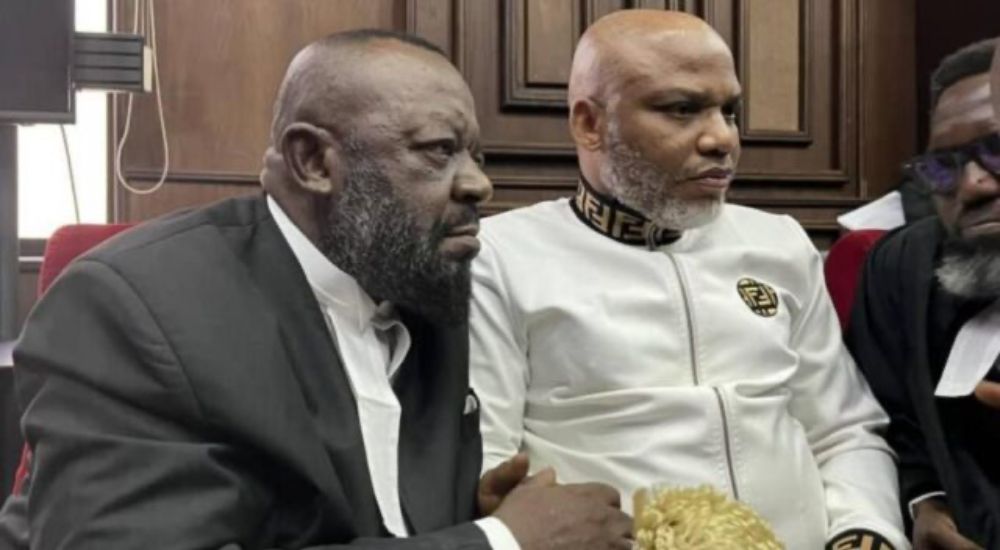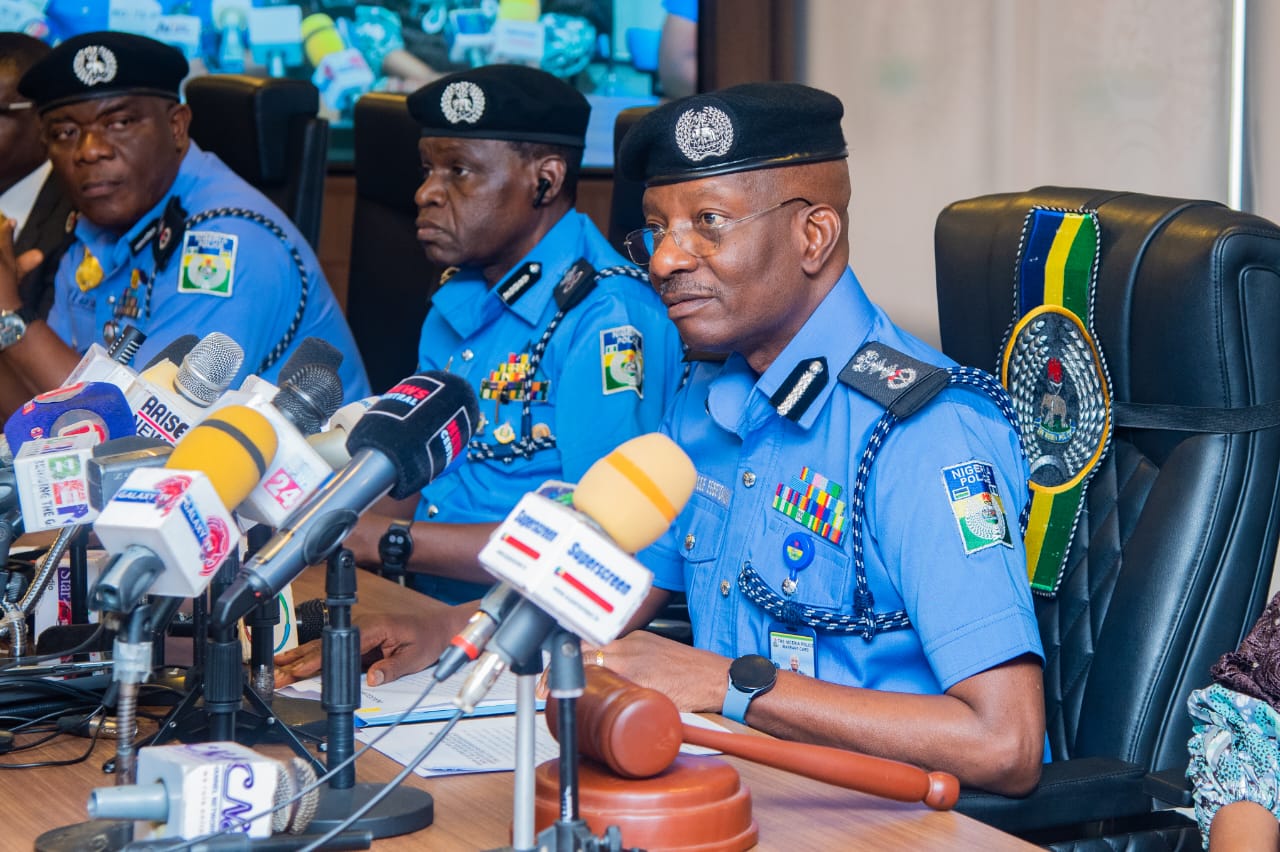The detained leader of the Indigenous People of Biafra (IPOB), Nnamdi Kanu, is scheduled to appear before a new judge on 21st March 2025, according to his legal team.
This was confirmed by Kanu’s Special Counsel, Barrister Aloy Ejimakor on Friday.
The Chief Judge of the Federal High Court, Justice John Tsoho reassigned Kanu’s case to another judge.
The reassigning was confirmed in a release on Saturday by Ejimakor, who had disclosed that Kanu was ready to face his trial because he was convinced of his innocence.
On Friday, Ejimakor while confirming the date for Kanu’s appearance in court before the new judge said, “It’s now official that Onyendu Mazi Nnamdi Kanu shall appear before a new Judge on 21st March 2025. It’s a milestone, and we are primed & ready.”
It’s now official that Onyendu Mazi Nnamdi Kanu shall appear before a new Judge on 21st March 2025. It’s a milestone; and we are primed & ready. pic.twitter.com/u9kPwm5fZw
— aloy ejimakor (@AloyEjimakor) March 14, 2025
This development marks a significant step in the ongoing legal proceedings, which have been fraught with controversy and constitutional challenges.
Kanu’s legal troubles have been a focal point of national and international debate since his extraordinary rendition from Kenya to Nigeria in June 2021.
His legal team and various human rights organisations have consistently argued that his detention and trial violate international law and Nigerian constitutional provisions.
Kanu’s legal team has repeatedly challenged the fairness of his trial, citing violations of his right to a fair hearing and speedy trial.
In December 2023, the Supreme Court ordered his case to be returned to the Federal High Court for trial, but his lawyers argue that the decision failed to address the revocation of his bail, which they insist must be restored before any further trial proceedings.
In recent months, Kanu has also filed two separate lawsuits against the Nigerian government, demanding an unconditional release from detention; N100billion in damages for alleged violations of his constitutional rights.
He also demanded a formal apology from the government, to be published in national newspapers, and the transfer of his case to the South-East, where he argued it should have been originally filed.
One of the major legal disputes in Kanu’s case has been the recusal of Justice Binta Murtala-Nyako in September 2024.
His legal team insists that her continued involvement would violate the principle of functus officio — a legal doctrine that prevents a judge from revisiting a case after stepping down.
Despite this, there were reports of efforts to return the case to Justice Nyako, leading to further legal challenges.
With a new judge now assigned, Kanu’s defense team has expressed confidence and readiness for the upcoming hearing.
However, it remains unclear whether the new judge will address the outstanding constitutional concerns raised by his legal team, particularly regarding his detention and trial venue.
Kanu’s case continues to be a flashpoint for political and human rights debates in Nigeria, with his supporters viewing him as a political prisoner, while the government maintains that he must face justice for alleged offenses linked to IPOB’s activities.
The hearing on 21st March is expected to set the tone for the next phase of the trial, as both the defense and prosecution prepare for a legal showdown.



